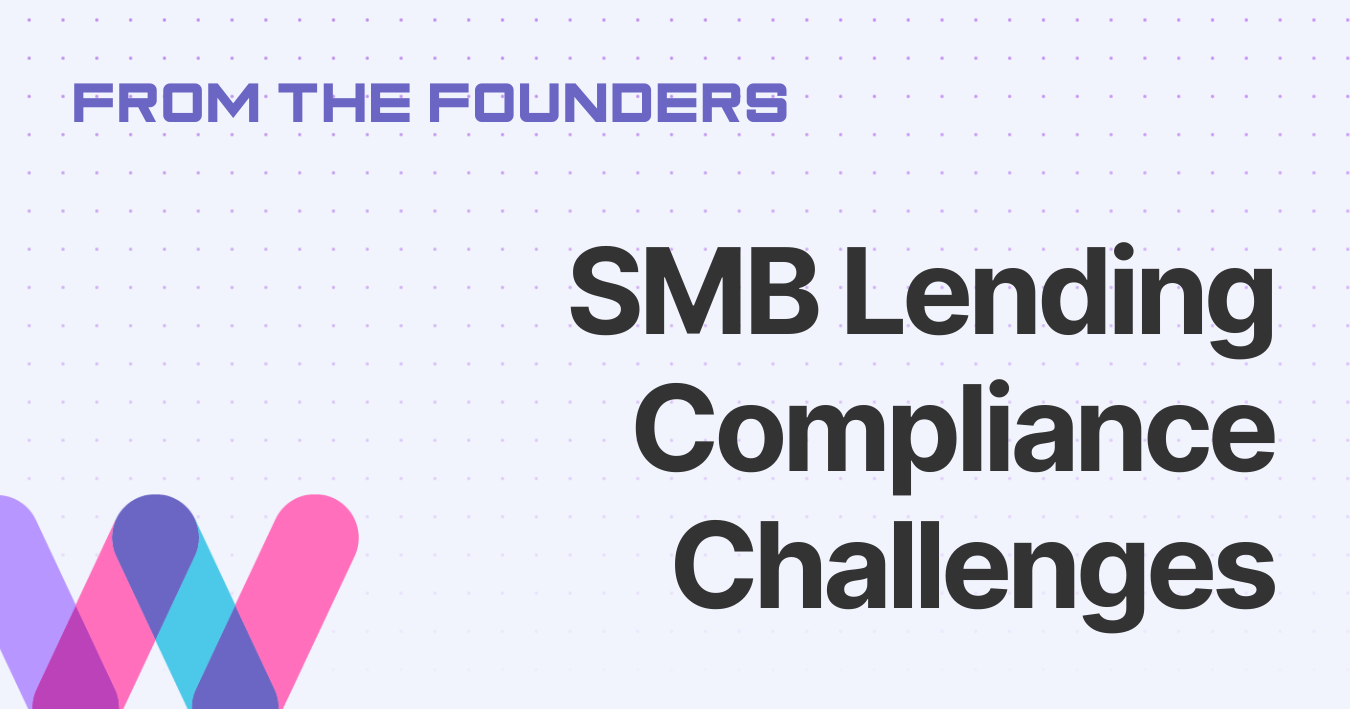Why Financial Institutions Can’t Afford to Ignore Automated Due Diligence
Why Compliance Can’t Be Ignored
Manual due diligence is slow, resource-heavy, and full of potential risks. The financial services industry is grappling with increasingly complex regulatory requirements, from Know Your Business (KYB) rules to Anti-Money Laundering (AML) policies.
With regulatory expectations growing more stringent each year, staying compliant has become a significant challenge for financial institutions. The manual approach to due diligence is not only inefficient but riddled with potential errors. One missed step could result in significant fines, loss of client trust, or worse: A full-blown compliance failure. That’s where automation steps in. Automated due diligence is not just a nice-to-have; it’s quickly becoming essential for financial institutions looking to streamline operations and stay ahead of regulatory challenges.
The Stakes Are Higher Than Ever
Regulatory pressures on financial institutions have never been higher, and manual processes simply don’t cut it anymore. In the last decade, we’ve seen an exponential increase in regulatory scrutiny, with global AML penalties alone hitting $10.4 billion in 2020, an 80 percent rise compared to the previous year. Organizations like the Financial Action Task Force (FATF) have increased the scope and complexity of compliance measures. Add to that the constant evolution of KYB/KYC requirements, and it’s clear: manual due diligence is a liability.
Manual processes are slow, error-prone, and often incapable of keeping up with the volume of data that financial institutions are required to process. One high-profile example of a compliance failure due to outdated manual practices was in 2018, when Denmark’s largest bank, Danske Bank, found itself in a $230 billion money-laundering scandal.
U.S. respondent banks relied on form fills completed by Danske Bank Estonia employees in order to conduct due diligence. In various instances, Dankse Bank Estonia lied about the proper “real-time” monitoring and due diligence practices that were supposed to be in place for high-risk accounts, but in reality those forms contained false information and respondents were misled by inaccurate and incomplete data.
A whistleblower later revealed the manual procedures in place allowed transactions to process from suspicious non-resident portfolios to slip through the cracks, enabling fraudulent activity to go undetected for years.
This reliance on manually filled forms contributed to U.S. banks losing nearly $160 billion to the Danske Bank scandal. The takeaway? Relying on manual due diligence isn’t just inefficient—it’s risky. As the Danske Bank case demonstrates, manual processes are not only prone to human error but also create opportunities for fraudulent activity to slip through, leaving financial institutions exposed to significant risks. Automating these processes is essential for mitigating risk and ensuring compliance.
How Automation Solves the Big Problem
Automation is the solution institutions need to streamline their due diligence processes, reducing both human error and workflow backup. Automated tools can quickly scan vast amounts of data, flagging suspicious activity or compliance red flags instantly. This efficiency is in stark contrast to manual checks, which can take days or even weeks to complete.
In 2023, HSBC teamed up with Google to implement an automated KYC system that allowed them to reduce fraud alerts by 60 percent. By using automation, HSBC can sift through various data points in a fraction of the time it took previously, allowing compliance officers to focus on more strategic tasks rather than getting bogged down in routine paperwork.
While processes are being sped up exponentially, automation also helps ensure accuracy. By eliminating the possibility of human error, automated due diligence tools help to ensure that no detail is overlooked, reducing the risk of regulatory breaches and associated penalties.
The Operational Benefits of Automated Due Diligence
Beyond compliance, automation offers significant operational efficiencies. Automated systems work around the clock, processing data and completing compliance checks in real time. This frees up valuable resources, allowing financial institutions to focus on growth and shortening their time to revenue.
Automation can make the difference between meeting regulatory deadlines and constantly playing catch-up. It gives financial institutions the breathing room to innovate and grow without the constant pressure of compliance deadlines looming over them.
Cost vs. Value: Why Automation Is Worth the Investment
Automating due diligence requires upfront investment, but the cost of non-compliance can be astronomical, with fines often reaching into the billions. On top of that, the manual processes required to meet ever-growing compliance demands will only become more expensive and harder to maintain over time.
A report showed that compliance costs for large financial institutions, banks especially, have increased by 60 percent, with U.S. banks spending up to a total of $50 billion annually since the implementation of the Dodd-Frank Act.
When you consider the year-over-year spending and the reduction in risk, automation offers a strong return on investment. Financial institutions need to think long-term when choosing whether or not to implement automated due diligence processes.
The Future of Compliance: Stay Ahead or Get Left Behind
The shift towards automation in compliance is not just a trend. Regulatory bodies are expecting financial institutions to readily report data and adhere to compliance regulations annually. With this increase in regulatory compliance needs comes the adoption of solutions meant to streamline compliance checks and reduce the risk of human error. Early adopters of these technologies are able to stay compliant with ease, without the worry of heavy fines or violations.
A survey from 2024 showed 51 percent of financial institutions surveyed plan to increase their investment in fintech, with combating fraud being one of the top priorities.
The longer a financial institution waits to adopt automation, the harder it will be to catch up, not just in terms of compliance, but in overall operational competitiveness.
How Worth Can Help
Worth offers an all-in-one automated workflow solution to the challenges of manual due diligence. Through data-driven AI, Worth empowers financial institutions to streamline their compliance processes, reduce errors, and protect themselves against regulatory risks while offering an interface that is still customer-centric.
Here’s how Worth’s automated due diligence tools transform the compliance landscape:
- Integrated Compliance Checks: Worth’s platform combines Know Your Business (KYB), Know Your Customer (KYC), and anti-money laundering (AML) processes into a unified system. This integration eliminates the need for disparate tools and ensures that every compliance check is thorough and seamless.
- Real-Time Monitoring: With Worth, financial institutions gain access to real-time monitoring and alerts. Unlike the outdated, inaccurate practices seen in cases like the Danske Bank scandal, Worth ensures that every high-risk account is flagged promptly, reducing the likelihood of fraudulent activity slipping through the cracks.
- Data-Driven Insights: Worth’s platform analyzes vast amounts of data from its database of over 242 million small businesses. This comprehensive data set enables financial institutions to make informed decisions, identify risks early, and maintain compliance with evolving regulations.
- Customizable Workflows: Worth offers customizable workflows tailored to the specific needs of each financial institution. Whether it’s automated form filling, identity verification, or enhanced due diligence for high-risk accounts, Worth provides tools that align with your organization’s goals and regulatory requirements.
By partnering with Worth, financial institutions can stay ahead of regulatory changes, protect against compliance failures and focus on growth.
You’ll Thank Yourself Later
Compliance isn’t just checking boxes. Automated due diligence is the key to staying up-to-date with regulatory compliance and staying ahead of the curve. See how Worth can help.
Worth's Workflow Automation Platform
See how automation can enhance your fraud prevention processes











